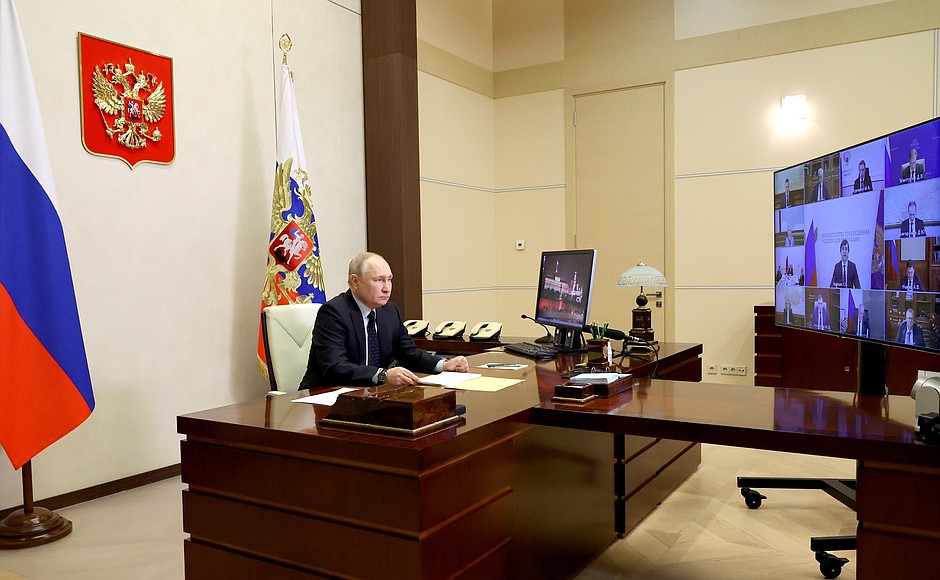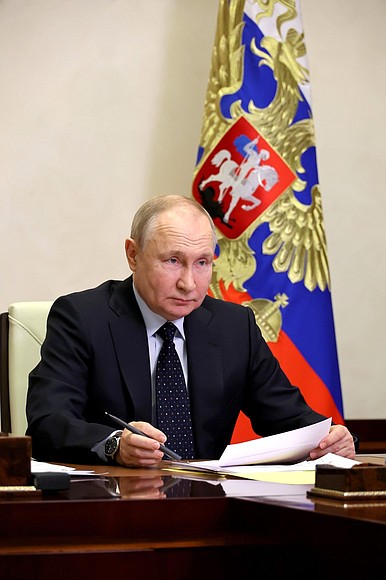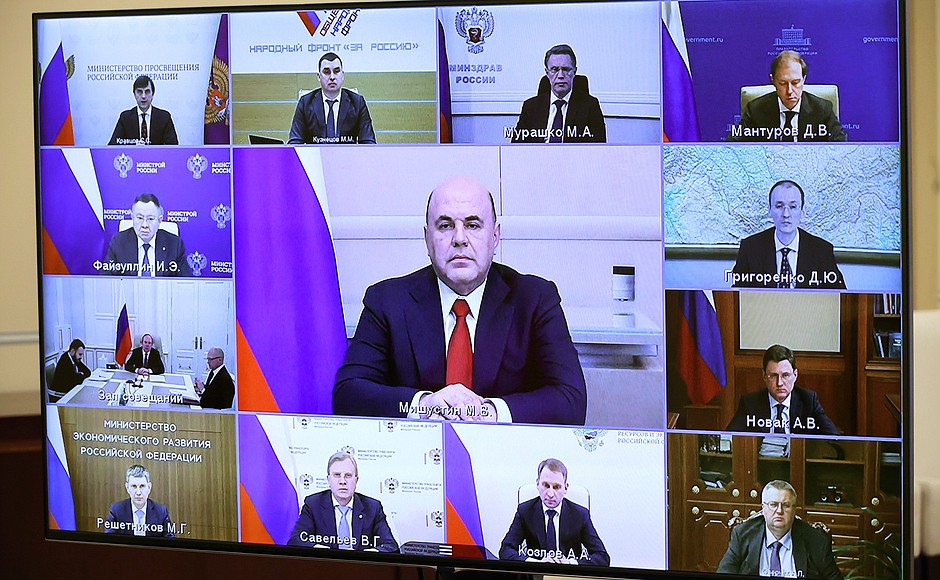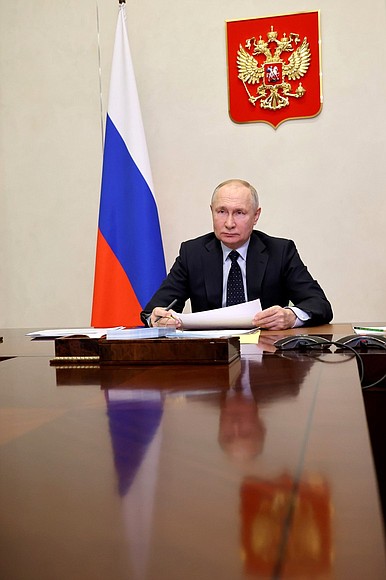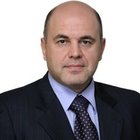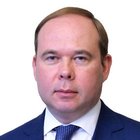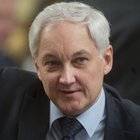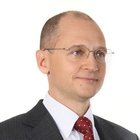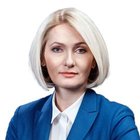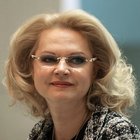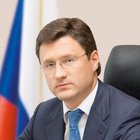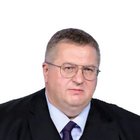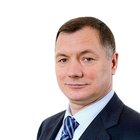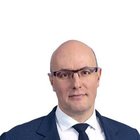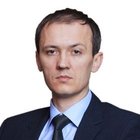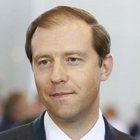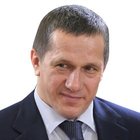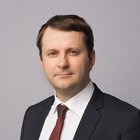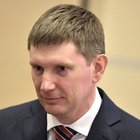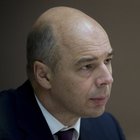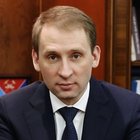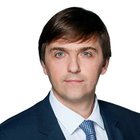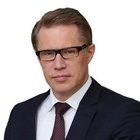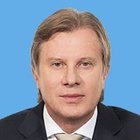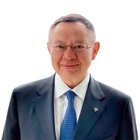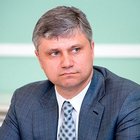Taking part in the meeting were Prime Minister Mikhail Mishustin, Chief of Staff of the Presidential Executive Office Anton Vaino, First Deputy Prime Minister Andrei Belousov, First Deputy Chief of Staff of the Presidential Executive Office Sergei Kiriyenko, deputy prime ministers Viktoria Abramchenko, Tatyana Golikova, Alexander Novak, Alexei Overchuk, Marat Khusnullin and Dmitry Chernyshenko, Deputy Prime Minister – Chief of the Government Staff Dmitry Grigorenko, Deputy Prime Minister – Minister of Industry and Trade Denis Manturov, Deputy Prime Minister – Presidential Plenipotentiary Envoy to the Far Eastern Federal District Yury Trutnev, Presidential Aide Maxim Oreshkin, Minister of Economic Development Maxim Reshetnikov, and Minister of Finance Anton Siluanov. Minister of Natural Resources and Environment Alexander Kozlov, Minister of Education Sergei Kravtsov, Minister of Healthcare Mikhail Murashko, Minister of Transport Vitaly Savelyev, Minister of Construction, Housing and Utilities of the Russian Federation Irek Fayzullin, Russian Railways CEO Oleg Belozerov and Head of the Executive Committee of the Russian Popular Front Mikhail Kuznetsov were also invited to the meeting.
* * *
President of Russia Vladimir Putin: Good afternoon.
We all know very well that today the development of domestic tourism remains one of the topical economic issues, for a whole range of reasons. We will address it today as the main issue.
But I would like to begin with something different. Yesterday, here in Ogaryovo, I held several meetings with my colleagues, including with the Minister of Science and Higher Education and the Minister of Education. We talked about the development of industries in general, in a broad sense, today and in the medium term.
In this context, I would like to say that at all times, such as those that we are living through today, we are clearly aware of the role and significance of the work of teachers, the activity of mentors. Because it is the teacher, educator, who for each of us lays the foundations of our worldview. And the sustainability, stability and future of our state largely depends on this.
It is no coincidence that we have declared 2023 the Year of the Teacher and Mentor. And in this regard, I would like to ask Mr Kravtsov to say a few words about the events that we have planned for this year.
Please, Mr Kravtsov.
(Minister of Education Sergei Kravtsov reported that Russia has over 2 million teachers and hundreds of thousands of others who are involved in mentorship outside the schools. Large professional forums will take place during the Year of the Teacher and Mentor, including the Moscow International Education Fair in March, the Mentorship Summer Festival, a forum of head teachers in October, a big Pedagogical Test, and a National Russian Class for the Year of the Teacher and Mentor programme in September. All regular professional competitions will be especially impressive. A separate series of events is devoted to the 200th birth anniversary of the outstanding Russian teacher Konstantin Ushinsky. These include the first congress of people’s teachers, to which colleagues are invited, including from CIS countries, with thematic exhibitions, lectures and academic competitions. Moscow State University will host an international pedagogical congress on Ushinsky’s heritage. New programmes to support teachers have been envisaged and grant opportunities expanded. The Ministry of Culture will continue its involvement in making films about teachers. The Minister noted that the events of this year are primarily aimed at enhancing the authority and status of teachers. He emphasized that these events will help increase the opportunities for teachers in the newly-joined regions. Pedagogical universities will be established in every new region to educate young teachers and upgrade the skills of their working colleagues.)
Vladimir Putin: Mr Kravtsov, do you remember your first teacher?
Sergei Kravtsov: Of course, I do. My first teacher was a primary school teacher, and I think many remember this wonderful period of personal development. I will never forget my first teacher. Many thanks to all first teachers.
Vladimir Putin: Right, I also remember my first teacher. We had Ms Tamara Chizhova, a professional pedagogue and a very kind woman. She taught us from the first form.
Thank you very much.
More people have been accepted at universities in the teaching professions in the past two years – an increase of about 10,000 people. This shows that the profession of teacher is growing. We must do everything we can to support this positive trend by working in all the areas that we know well. I will not list all of them now.
Thank you very much.
Now I would like to ask Mr Kuznetsov from the Russian National Front to say a few words about the supply of medicines. What is the problem? The problem is that prices have recently gone up and there was a certain shortage of some medicines.
Although pharmaceutical industry production is growing – in the three quarters of last year it went up by about 22 percent, and our market is about 60 percent domestically produced medications now, there was still a shortage of some drugs, and prices went up.
We can see this in the results of the random inspections of the retail pharmaceutical networks.
(Head of the Executive Committee of the Russian Popular Front (RPF) Mikhail Kuznetsov said that the RPF hotline was receiving complaints from some patients who cannot buy certain medications prescribed by their doctors. Most people are calling about shortages of popular medications for cold, flu and other seasonal illnesses, such as antibiotics of foreign brands. He noted that the most popular of these medications have alternative generics that are of Russian make for the most part. Mr Kuznetsov expressed his belief that since there are Russian counterparts for the vast majority of medications in short supply, it is necessary to draft a separate programme for promoting domestic medications among patients and doctors and, most importanlyt, among pharmacists in pharmacies because the final choice of a medication by a patient often depends on them. Western pharmaceutical companies were consistently conducting such work in Russia for many years.
Next, Minister of Healthcare Mikhail Murashko described his views of the situation at the President’s request. He said that during the pandemic it became obvious that the artificially heightened demand required the development of domestic pharmaceutical production and other procedures – accelerated registration, safety testing and market entry. During the pandemic the Government already developed a package of measures enabling departments to meet their obligations to citizens. The bulk of medications used during the pandemic was of Russian make. According to the Minister, about 6 billion packs of medications enter the market in the Russian Federation every year. Now 70 percent of them are domestic medications, which guarantees stability in difficult periods. The Minister mentioned some important tasks, like curbing the artificially heightened demand that is causing shortages in the market, monitoring prices and making timely decisions during price hikes. He said it is also necessary for medications to be accessible, that is, to have enough drug dispensaries, and to deal with the concerns of the population over clinical studies of new medications. As part of the strategic undertakings coming in response to new challenges, Russian industry has compiled a list of priority medications. Clinical studies conducted in the Russian Federation have increased primarily owing to domestic producers. Mr Murashko emphasised that domestic producers and the Government should make more effort to promote these medications for the purposes of import substitution. It is important to explain that the quality of Russian medications is just as high as their foreign counterparts.)
Vladimir Putin: Since Mr Murashko mentioned domestic production, I would like to ask Mr Manturov to comment on what the Minister of Healthcare has said, in particular on issues related to domestic developments and clinical trials.
Go ahead, please.
Deputy Prime Minister – Minister of Industry and Trade Denis Manturov: Thank you very much, Mr President.
The pharmaceutical industry has significantly improved its capacity, competencies and product lines over the past few years. We are keeping up the pace that we gained. Looking at the operational statistics for the three quarters of 2022 we see that output is up by over 15 percent compared to 2021.
Russian pharmaceutical companies produce enough basic medications and also flu, coronavirus and ARVI vaccines to meet the demand. Whenever there is a spike in demand for a particular medication, we quickly repurpose production lines to make more of these medications. Overall, to date, the pharmaceutical industry companies produce 82 percent of all vital and essential medications. Meanwhile, the industry is becoming increasingly more technologically independent when it comes to key production cycle phases, including raw materials.
Last year, seven companies became operational, and are now manufacturing a wide range of substances. Based on a new investment platform, we are launching a long-term programme in conjunction with VEB.RF, which will make the production of about 145 new substances possible.
Mr President, also on your instruction, we continue to work on low-tonnage chemistry. Since some foreign manufacturers may freeze supplies, we have focused on clinical trials, and this work is underway: 130 medications have been registered and clinical trials have expanded by almost a third from 395 in 2021 to 525 in 2022. The Healthcare Ministry is actively assisting, and we will continue to step up the pace.
About ten new medications are at different phases of testing. The on-shelf product mechanism will incentivise the developers. The Government has prepared this instrument for approval and it will help us create alternative Russian medications that can be quickly brought to the market should the supply of certain imported medications stop.
All this contributes to the development of an independent pharmaceutical industry and of course, to sustainability of drug supply in the country. We will continue to work hard in this area.
Mr President, if I may, I would like to take this opportunity to say a few words about the current status of the medical industry. May I have a moment?
Vladimir Putin: Yes, please.
Denis Manturov: Thank you.
The medical industry increased output by 18 percent last year while the market is nearly 50 percent higher. The Russian share was about 25 percent in the first three quarters. Ten new production facilities have been launched to produce biomaterials, prosthetic implants, other implants, ultrasound machines and a broad range of other medical equipment. Most of these designs have been supported via the Industrial Development Fund, with subsidies for research and development and reverse engineering. We have been using this tool for two years, and it is yielding results. Also, insurance premiums have been cut as well as profit tax for manufacturers of X-ray and functional diagnostics equipment.
Overall, Russian companies registered over 1,100 new medical products last year, and we and the Healthcare Ministry promptly gave them public procurement preferences. This makes it possible not only to push imports from the state sector but also boosts series production thus making it easier to enter the open market. Naturally, it also enables enterprises to raise quality and technological independence in the future.
Thank you for your attention.
Vladimir Putin: I would like to note the following on this matter.
First, it is known that we do not ban imports and do not limit them. We are working with foreign producers which have traditionally operated in our market. I should say that many of them continue operating normally, however, as we see, some of them have suspended research. It is certainly crucial to step up our efforts in this area. I hope it will proceed this way. That is number one.
The second point relates to the fact that the recent events we are speaking about are not something new to us. There is nothing unusual about them, the same thing is happening in a number of other industries as well. We have a general understanding of how to respond, we just need to do it. I mean we have to ensure stocks of the most needed medicines are adequate during a certain period of time.
When we are in the autumn-winter season, we still pump natural gas into underground storage facilities to get through the peak of that season, even though we are among the biggest gas-producing countries. We do the same regarding the basic food items in stores that are most in demand.
Of course, pharmaceuticals are a special case, but the approach is the same, and we can successfully get through the flu season, because we are all aware that during this period the most needed medications are fever reducers, antibiotics and the like. Nothing is preventing us from creating a certain reserve. I would like to ask you to think about it. Let me repeat, it would make life a lot easier for many people and would curb market volatility.
I ask everyone involved in this sector to think about it: the Ministry of Industry and Trade and the Ministry of Healthcare. I hope relevant proposals will be made, and they will be put into practice.
The housing and utilities system is another important aspect. We deal with it all the time, and the normal life of millions of Russian citizens depends on the solution of various issues in this sphere. We talk about this all the time. I asked the Government to draft a programme to modernise the utilities infrastructure. I would like to thank you for accomplishing this task. Moreover, this is not some wishful thinking, and this programme has received funding. Last year, we allocated 170 billion rubles for these purposes, and we have set aside 440 billion rubles since the beginning of 2023. This funding is quite substantial, and the document says where, when and for what purposes we should spend these allocations.
I would like to ask Mr Fayzullin to comment on this issue and to tell us about this work since early 2023.
(Minister of Construction, Housing and Utilities Irek Fayzullin noted that the Russian housing and utilities system currently employed 2.3 million people at 42,000 organisations. The sector’s key task is to modernise the utilities infrastructure. The system of utility facilities includes almost one million kilometres of utility lines. Over 42 percent of line facilities should either be replaced or overhauled. To resolve this issue, the authorities have drafted a programme to modernise the utilities infrastructure. On the whole, the 2023–2024 programme aims to replace at least 8,000 km of engineering mains and over 100 facilities, to reduce the utility infrastructure’s accident rates and to improve the quality of utility services for almost three million people.
The Minister discussed the state of things in new regions separately. A total of 48,953 facilities and almost 12,000 km of utility lines were prepared ahead of the autumn-winter season. Material resources were delivered to the Donetsk and Lugansk people’s republics and to the Zaporozhye and Kherson regions. In all, 188 modular pre-fab boiler rooms were delivered for heating restored facilities on time. The Ministry is focusing on projects in Mariupol, Volnovakha and Energodar, as well as the Severodonetsk agglomeration, where the largest number of destroyed and damaged facilities are located.
According to Irek Fayzullin, an action programme for modernising the engineering and utility facilities of these regions is being drafted under a presidential decision to allocate infrastructure budget loans worth at least 50 billion rubles for the new territories. This will make it possible to ensure their operation under pre-set standards.)
Vladimir Putin: All right. I hope that all stages and provisions of the programme to develop the housing and utilities system (that we are now discussing) will be fulfilled on time, in a high-quality manner and in full volume.
Here is another issue. (Addressing the Prime Minister.) Mr Mishustin, I would like to draw attention to the following issue. The Minister has just recalled the work in the new territories. We aimed to implement an entire array of measures there, including those in the social sphere, in the field of raising people’s living standards, their incomes, etc. I will not list everything right now. All the funding is stipulated, we have all the required allocations for this, and we have agreed on everything. I would like to ask you to expedite the approval of relevant technical decisions, so that this work can be launched as soon as possible. Today is already January 24. All right? Please look into the matter, and we will talk about this issue later on.
Mikhail Mishustin: Yes, will do, Mr President.
Vladimir Putin: Thank you very much.
Let us discuss the main issue, namely, the development of inbound tourism in 2023. I would like Mr Reshetnikov to start. Please, you have the floor.
Minister of Economic Development Maxim Reshetnikov: Mr President, colleagues,
Today, the increased demand for travel around the country is a stimulus for the accelerated development of tourism. In the first nine months of last year, the industry grew by almost two percent – 1.8 percent – year-on-year. At the same time, the number of tourist trips with hotel accommodation increased by eight percent year-on-year, involving as many as 62 million people. We are close to pre-COVID levels, despite the closure of southern airports.
This is directly related to the decisions adopted at your request, Mr President, last year, in particular, with the implementation of the programme refunding part of the travel costs. Almost 3.5 million people took advantage of this mechanism, including over 800,000 children who benefitted from the children's cashback programme.
At the same time, the industry is undergoing structural changes. The number of rooms in classified hotels and inns increased by 47,000 to reach 777,000 rooms. The number of organised tours in Russia grew by 16 percent, and the share of such tours reached 30 percent.
The regions are involved in the tourism agenda. Last year more than 30 regions received subsidies for tourist infrastructure, equipment and campsites as part of the national project. In total, excluding modular hotels, it was five billion rubles. This year, 63 regions are already taking part in the national project, and their total support will amount to 13.8 billion rubles, which means that we see practically threefold growth.
In addition to the traditional leaders in terms of tourist flow – Moscow, the Krasnodar Territory, St Petersburg, Crimea, Tatarstan – we have seen impressive growth rates from Tuva and Kamchatka, and there is increasing interest in the Vladimir, Pskov and Vologda regions. These are the new points on the map of domestic tourism, just a ”weekend“ format.
At the same time, the task of the regions is to more actively prepare the land plots for the construction of hotels and campsites, to work more closely with investors and for this purpose, use all the investment support instruments that we have.
At the end of last year, we also managed to achieve a number of additional objectives that had been set. First, we supported more than 1,500 entrepreneurs in Crimea and Sevastopol, because these regions faced a decline in tourist traffic, as a result of restrictions. We also settled the issue of compensation to tour operators for flying tourists home in February and May because of the actions of unfriendly countries.
At the same time, the development of the industry itself at this stage requires an approach that is already complex, it is primarily the issues of balancing outbound and inbound tourism, the matter of international cooperation, integration with transport routes, support for private investments in building new hotels and the challenge of providing government services. We are dealing with all these issues as part of our joint work with the Ministry of Construction, the Ministry of Transport, the Ministry of Natural Resources and other colleagues.
(The Minister further reported on a number of new proposals aimed at overcoming the main constraint on the industry’s growth, namely, the shortage of hotels and rooms. The proposals include building modular hotels, supporting small businesses, providing preferential lending to large hotels, supporting hotel modernisation projects, and identifying several categories of territorial priorities. The first and the most important priority is to develop hotels in special economic zones for tourism and recreation. According to the Minister, there are ten such SEZs, located on Lake Baikal, in Altai, in the North Caucasus and in the Tver Region. The Minister proposed giving the new territories first priority status. Maxim Reshetnikov also mentioned proposals concerning the work of tour operators, in particular, exempting their tourist products from VAT, but only domestic trips or inbound tourism projects – to support the growth of this industry within Russia.)
Mr President, the tourism development agenda is very broad. It includes new legislation regulating guest houses, giving status to campsites, hotel tax issues, and increasing the industry’s responsibility to tourists. We are continuing with the development of an updated industry law, preparing proposals to bring the industry out of the shadow economy, to continue this process, and of course, we are waiting for the adoption of a law on tourism in specially protected natural areas.
At the same time, we are focusing on the implementation of landmark regional projects such as The New Anapa, The Great Volga Way, the Caspian Cluster, the Far East, Altai and others. We are supporting these projects, also through using the Tourism.RF Corporation resources – the corporation has also allocated 38 billion rubles to support investment projects; this is a significant resource. And we are linking these plans with our infrastructure development planning, with master planning, where we are closely cooperating with VEB.RF.
In addition, at the request of businesses, we are working on proposals to develop or support major infrastructure facilities such as cableways and theme parks. Such facilities are essential to ensure constant hotel room occupancy, including in the off-season.
Another key issue is transport of course, because transport costs account for as much as 60 percent of the price of travel. To improve this component, we are working with Minister of Transport Vitaly Savelyev to match available passenger traffic with tourist flows and synchronise the two.
Mr President, I am sure that this kind of comprehensive approach to supporting tourism will ensure positive dynamics in the number of available rooms and other infrastructure that Russians need to travel around the country as well as for guests from other countries to travel to Russia.
Thank you.
(At the request of the President, Minister of Finance Anton Siluanov commented on the Economic Development Ministry’s proposals concerning VAT exemptions for tour operators. Mr Siluanov said that the issue had been discussed and supported by the Government.)
(Later, Minister of Transport Vitaly Savelyev and Minister of Natural Resources and Environment Alexander Kozlov delivered their reports.
Vitaly Savelyev noted that the transport sector was rerouting itineraries and transit capacities in line with the changing tourist requirements. Russian air carriers now operate 1,164 passenger airliners, and their number completely meets domestic and international demand. In 2022, air carriers received 174.2 billion rubles worth of federal budget subsidies, an all-time high. This made it possible to carry over 95 million people, although 11 airports in southern Russia remain temporarily closed. The plan for 2023 is to to carry over 101 million passengers. The Minister also recalled that the President had approved subsidies to Russian air carriers for attaining specific passenger traffic volumes. Purposeful work is now underway to buy out aircraft from foreign leasing companies, and the Ministry is therefore planning to reduce the volume of subsidies that are being requested in direct proportion to the number of aircraft that are being purchased.
While reporting on the performance of railways, the Minister spoke about transport communication with Crimea. Trains carried 2.2 million passengers during the 2022 summer season or 76 percent more than in the same period in 2021. In 2023, Russian Railways plan to drastically expand traffic to the Republic of Crimea to carry three million passengers.
Speaking about maritime transport, Vitaly Savelyev noted record demand for high-speed vessels. Last year, traffic volumes in the Black Sea basin soared by over 45 percent. There are plans to expand them by another 15–20 percent in 2023 to carry about 52,000 passengers. The Minister also noted that large modern terminals in St Petersburg, Sochi, Vladivostok and Petropavlovsk-Kamchatsky were ready to receive cruise ships in 2023. The national river transport sector is posting additional tourist demand. In 2022, inland water transport (cruise ships) carried over 320,000 tourists, up 35.5 percent on 2021. That same year, inland water transport carried about 1.7 million people on guided tours along pre-set routes. This exceeds 2021 levels by over a third. The number of passengers is to reach three million in 2023.
Alexander Kozlov devoted his report to federal-level specially protected nature territories with an area of 75 million hectares. Land areas cover 50 million hectares, and water bodies make up for the rest. Recreational opportunities, including nature trails and routes and 1,500 tourist zones, are available on only six million hectares. Additionally, there are 290 visiting centres, 135 museums and 115 sites where people can enjoy safe wildlife observation. In all, 14 million people have visited these specially protected nature territories, up 32 percent on 2021. Cruise lines are another promising aspect. As per the President’s instruction, the authorities have studied the issue of using research vessels as cruise ships. Specific routes have been charted, covering ten national parks and reserves that are difficult to reach by land.
The Minister also discussed efforts to draft a bill for recreational activities in specially protected nature territories and another bill dealing with all coastal zones nationwide. The document will make it possible to resolve a long-time problem when regulations for recreational beach and water activities were not coordinated because different agencies are responsible for water management and ground-based recreational areas.)
Vladimir Putin: Mr Kozlov, you mentioned our people’s interest in cruise tourism and our decision to use scientific vessels, and you spoke about ten national parks. Could you tell me what area this is, which parks they are? I think that our people will also be interested to learn about this.
Alexander Kozlov: Yes, Mr President. These are the Sikhote-Alin Nature Reserve, the Land of the Leopard, the Far Eastern Marine Reserve, Kedrovaya Pad, Ussuriysk, Kuril, the Lesser Kuriles, Beringiya, Wrangel Island and the Kronotsky Reserve.
These are the Kuriles, Kamchatka and Primorye territories. As we said in Vladivostok [at the Eastern Economic Forum], we want to organise the routes so that tourists would come and operators would order a good vessel, let us say, worthy of the level of our people.
Vladimir Putin: These are unique routes in the truest sense of the word, very interesting and exciting, I would say, and incomparable with anything else. Of course, it is necessary to pay attention to the development of this area.
(At the President’s request, Deputy Prime Minister Dmitry Chernyshenko, who oversees the tourism sector, commented on the main topic of the meeting: the development of domestic tourism in 2023. He noted that this is a very important issue now that involves many related areas, and there are very promising areas to develop, with new technologies being created, such as technologies that make it possible for entrepreneurs to produce environmentally friendly electric ships. A lot of work is also underway to prepare infrastructure: mooring, stations, etc. According to the Deputy Prime Minister, at a recent governmental meeting, the Ministry of Economic Development was instructed, together with all interested federal executive authorities and businesses, to draft an action plan for the development of cruise tourism up to 2024, which should involve synchronisation with all national projects, as well as state and other programmes.
Dmitry Chernyshenko also spoke about a unique large-scale project, the Novaya Anapa all-season family resort on the Black Sea coast.)
Vladimir Putin: Colleagues,
The issue that we are considering today is very important from an economic point of view, from a social point of view, and from a health point of view, bearing in mind that a good summer holiday, of course, has a favourable effect on people’s health, especially that of children, and family holidays strengthen the family.
This is a complex issue, and I think we did the right thing by focusing on it today. It is very important that everything we have talked about today is agreed upon within the Government, not to cause any interdepartmental disagreements, and has the necessary financial support.
I want to express my hope that this will be the case.
Thank you very much. I wish you all the best.
